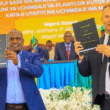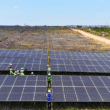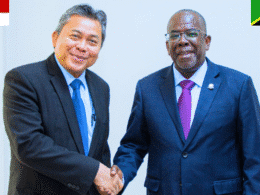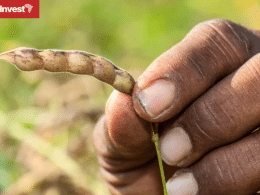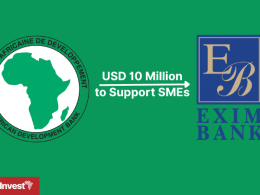According to a recent report by the Citizen, Dr. Ali Mohammed Shein, Vice President of Tanzania, spoke to reporters during the Nane Nane Exhibitions at the Nzuguni grounds about the government’s promise to continue designating funding from the budget to the development of the Tanzania agriculture program in order to ensure the success of the National Agricultural Sector Development Program (ASDP).
Dr. Shein went on to indicate that the government’s primary goal was to guarantee that the agriculture sector continued to receive an increased amount of investments.
“I would like to re-emphasis here that the aim of our Government is to see more and more investments put into the agricultural sector as investments in it is key to the sector’s development,” said the vice president.
The government’s increased commitment to the sector is indicated by the fact that the sector’s budget has received a 30 percent increase from the previous financial year.
“We have set aside Sh666.9 billion for agriculture this financial year which is a 30 percent increase from last year’s allocation,” said Dr. Shein, “despite this big increase, we are still obliged to raise the allocation to ten percent of our national budget so as to fulfill the AU (African Union) leaders’ target,” he said.
Nevertheless, Dr. Shein explained that in spite of the Government’s efforts to invest in the country’s agriculture and livestock sector, the primary investors in the sector still remained its stakeholders, such as farmers, livestock keepers and cooperatives.
“The investment which the Government is making is just to stimulate and accelerate the investment process by creating an enabling environment to help farmers and entrepreneurs in the sector successfully do their activities,” said Dr. Shein.
With this in mind, the vice president encouraged the country’s farmers and livestock keepers to begin seriously participating in the implementation of the ASDP along with their respective district programs under District Agricultural Development Plans (DADPS).
“This is a unique program,” he said, “which provides opportunities to farmers and livestock keepers in the country to identify what was affecting their activities and formulate programs to address them.”
Dr. Shein went on to explain that the government has collaborated with development partners in order to establish a common fund in support of this development program.
During the process of establishing this most recent development program, the production of food crops in the country witnessed an increase from 4.7 million tons in 2007 to 5.3 million tons in the 2008/09 season as a result of the increased use of farm inputs that were given to farmers by the government through the country’s agricultural inputs subsidy program.


